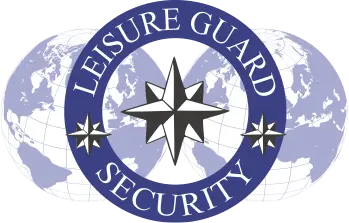Security guards in UK have a specific duty to handle crime and maintain overall security. They have a duty to stop criminal activities, responding to emergencies, making sure that all individuals are safe and secure. However, still security guards abide by the rules and laws and they have limited authority towards certain things. Security guards must be trained perfectly and alert to perform their duties and responsibilities and ensure that they protect individuals. Security guards generally keep security in commercial areas, busy spaces, event arenas, and other public spots.
The Key Responsibilities of Security Guards
The responsibilities of security guards depend upon the place or premise they are hired for from security agencies such as
Leisure Guard Security. There are many different things that they are allowed or not allowed to do. The following are the key responsibilities of security guards:
1. Patrolling an area
One of the key responsibilities of a security guard is patrolling areas. Security guards are often hired to patrol areas to maintain the safety and security of a property. The presence of security guards in the form of patrolling sends an alert to potential criminals that discourages them from performing any criminal activity.
2. Responding to emergencies
Security guards are super-fast in noticing if any emergency occurs. In fact, they are often the first to notice and respond to any danger that takes place. Furthermore, most security guards are aware of the
dangerous areas in UK and how to stop people entering those areas. In case of any danger such as a medical or fire emergency, security guards quickly contact emergency service agencies such as police, fire department, or medical personnel to report the situation.
3. Checking identification
This is one of the most important key responsibilities of security guards. They check identification to ensure that individuals who are entering a specific place have the legal access to do so. This particular process helps maintain security, protect against potential threats, and prevent suspicious people from entering. This is one of the
challenges faced by security guards in UK.Security guards ensure that the documents of identification given by individuals determine their authenticity. These documents include ID cards, driver’s licenses, or passports. Security guards also check the security holograms, watermarks, the date of expiry, and the overall condition of the document.
4. Empowering rules and regulations
Another important duty of security guards is to enforce rules. This means that they get proper training that helps them to understand the rules and regulations that are provided them in a specific location. Furthermore, they are aware of control policies, safety protocols, restricted areas, and specific guidelines.In addition, security guards balance their physical presence in the area they are hired for. Their availability allows them to block potential criminals and rule violators. The presence of security guards can also stop individuals from performing suspicious activities.
5. Reporting incidents
When an emergency takes place, security guards play a very important role. They are usually the first to letting know any danger situation since reporting incidents is necessary for documenting, initiating responses, and taking follow-up action. They are good at examining the situation and ensuring the safety and protection of individuals who are involved.
6. Removing from premises
Security guards are allowed to remove people from the premises if they are not following the regulations of a venue and behaving aggressively or causing risks. Security guards are committed to providing complete security to individuals and must not tolerate any sort of aggression that may harm individuals or even business owners.
7. Security Searching
Security guards can search people’s bags only if they get permission from them. They are allowed to check the bags without their permission only in the case of any individual carrying a weapon inside their bags. However, security guards can ask individuals if they allow them to take a look at their bags and if they refuse them, they would simply not allow them to enter the venue.
Conclusion
Security guards are hired to ensure public safety in a business including clients, business owners, employees, employers, etc. They are meant to protect and safeguard every area from potential criminals and any suspicious activity. However, it is important to understand that they are not allowed to handle everything since they abide by specific rules and regulations. Therefore, there are certain things that people must handle by themselves. Before hiring security guards you must make sure that they are well-trained and aware of the legal rules and premises so that they can ensure proper safety and protection.
